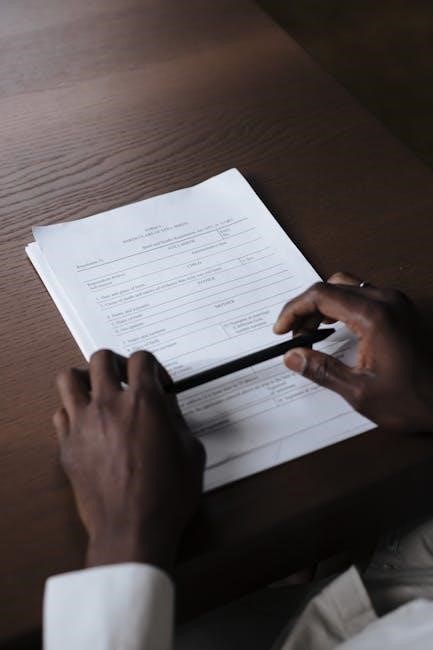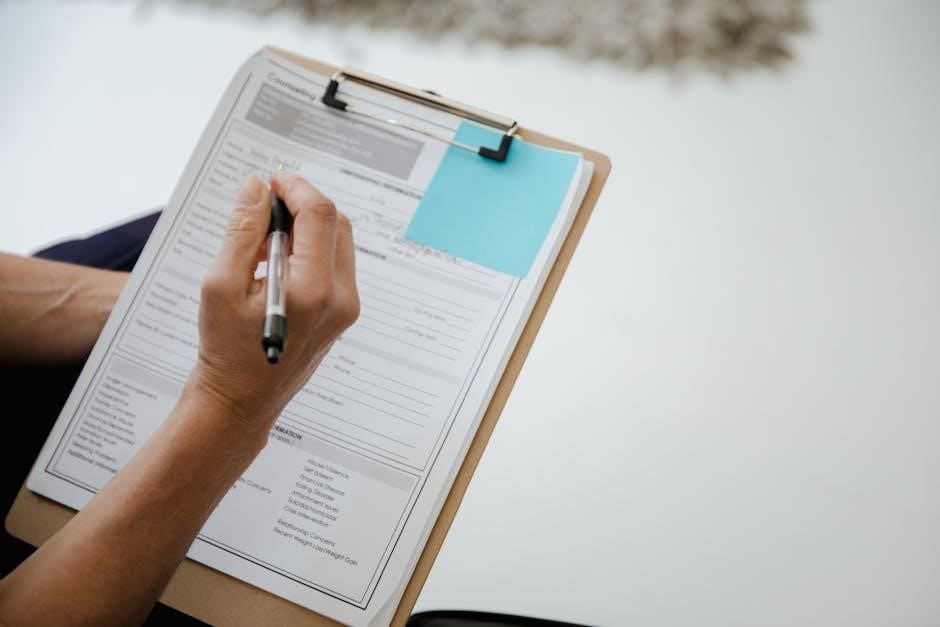Philippine dual citizenship offers Filipinos the chance to maintain their heritage while embracing opportunities abroad, particularly in the UK, through legal processes and benefits.
Overview of Dual Citizenship
Dual citizenship allows individuals to hold the citizenship of two countries, granting them the rights and privileges of both nations. For Filipinos, dual citizenship is recognized under Philippine law, enabling them to maintain their Filipino heritage while acquiring citizenship of another country, such as the UK. This status provides greater flexibility in travel, employment, and residency, as well as access to benefits like owning property in the Philippines and participating in its political processes. Dual citizenship is particularly beneficial for Filipinos living or working in the UK, as it simplifies legal and administrative processes while preserving their cultural ties to the Philippines.
Eligibility Criteria for Philippine Dual Citizenship
Eligibility includes natural-born Filipinos, those with Filipino parents, former Filipino citizens, and foreigners married to Filipinos or with Filipino children, under Philippine law.
Who Can Apply for Dual Citizenship?
Individuals eligible for Philippine dual citizenship include natural-born Filipinos who acquired foreign citizenship, former Filipino citizens, and foreigners married to Filipinos or with Filipino children. Applicants must meet specific legal requirements, such as retaining Philippine citizenship or demonstrating strong ties to the Philippines. For UK-based applicants, the process involves submitting documents to the Philippine Embassy or Consulate, ensuring compliance with both Philippine laws and UK residency requirements. Dual citizenship offers benefits like property ownership and voting rights in the Philippines, while maintaining their UK status, making it a valuable option for those with strong connections to both nations.
Benefits of Holding Dual Citizenship
Holding Philippine dual citizenship offers numerous advantages, including the ability to live and work in both the Philippines and the UK without visa constraints. Dual citizens can own property in the Philippines, engage in business opportunities, and enjoy access to quality education and healthcare. Voting rights in Philippine elections are also granted, allowing individuals to contribute to their homeland’s future. Additionally, dual citizenship simplifies travel between countries, eliminating the need for visas or lengthy immigration processes. It also provides a sense of belonging and cultural connection to both nations, enhancing personal and professional opportunities while maintaining strong ties to one’s heritage. This dual status is particularly beneficial for Filipinos residing in the UK who wish to retain their roots while fully integrating into British society, offering a blend of cultural identity and practical advantages that enrich their lives.

Required Documents for Dual Citizenship Application
Key documents include a valid Philippine passport, birth certificate, marriage certificate, proof of residency in the UK, and a completed application form, often requiring notarization.

Passport and Identification Requirements
A valid Philippine passport is essential for dual citizenship applications. Applicants must submit their current passport and may need to provide a UK residence card or valid visa. Additionally, identification documents such as a Philippine government-issued ID or a UK-issued ID are required. Ensure all documents are up-to-date, as expired passports or IDs may delay the process. If your Philippine passport has expired, it must be renewed before proceeding with the dual citizenship application. Notarized copies of these documents may also be requested. Clear, color copies of both the passport and identification are recommended for submission.
Birth and Marriage Certificates
Birth and marriage certificates are critical documents for dual citizenship applications. Applicants must submit a certified true copy of their birth certificate from the Philippine Statistics Authority (PSA), formerly the NSO. If married, a marriage certificate issued by the PSA or a recognized foreign authority is required. Documents must be authenticated or apostilled if issued outside the Philippines. For UK-based applicants, ensure these certificates are translated into English and notarized. Original documents may be requested during the application process. Additionally, applicants must provide proof of any name changes or legal modifications to these certificates. Ensure all documents are valid and up-to-date to avoid delays.
Proof of Residency in the UK
Applicants must provide proof of residency in the UK to support their dual citizenship application. Acceptable documents include a valid UK visa, council tax bills, utility bills, or bank statements. These documents must be recent, typically within the last three months. Employment letters, tenancy agreements, or a valid UK driving license can also serve as evidence. Ensure all documents are in English or officially translated if necessary. Submitting these proofs demonstrates your legal status in the UK and aligns with the application requirements. Always verify the most current documentation guidelines with the Philippine Embassy or Consulate in the UK to ensure compliance and avoid delays in processing.

Completing the Dual Citizenship Application Form
Filling out the form accurately is crucial; Ensure all personal details match official documents. Double-check for errors before submission to avoid processing delays or rejections.
Step-by-Step Guide to Filling Out the Form
To complete the Philippine dual citizenship application form, start by downloading the latest version from the Philippine Embassy in the UK’s official website. Carefully read the instructions provided. Begin by filling in your personal details, ensuring accuracy in names, dates, and places. Next, provide information about your Philippine citizenship, including your birth or naturalization details. Attach required documents, such as your Philippine passport, birth certificate, and proof of residency in the UK. Review the form thoroughly to avoid errors. Sign and date the application where indicated. Finally, submit the form along with the necessary fees and supporting documents to the Philippine Embassy or consulate.
Common Mistakes to Avoid
When completing the Philippine dual citizenship application form in the UK, several common mistakes should be avoided to ensure a smooth process. One major error is incomplete or inaccurate personal information, such as incorrect spellings of names or outdated addresses. Applicants often overlook the requirement to provide clear and legible copies of supporting documents, leading to delays. Additionally, failing to sign and date the form where required can result in rejection. Another mistake is submitting the wrong fee or not including the payment receipt. Applicants should also ensure they use the most recent version of the form and carefully follow the instructions provided by the Philippine Embassy in the UK. Avoiding these errors can help prevent delays and ensure a successful application.
How to Apply for Dual Citizenship in the UK
Obtain the application form from the Philippine Embassy in the UK, fill it out accurately, and submit it with required documents and fees for processing.

Submission Process and Required Fees
To apply for Philippine dual citizenship in the UK, submit the completed application form, along with all required documents, to the Philippine Embassy in London. Ensure the form is filled out accurately and signed. Required fees include the application processing fee, oath-taking fee, and other minor charges. Fees are non-refundable and must be paid via bank draft or money order. Submitting in person is recommended, though postal applications are accepted. Include a self-addressed envelope for the return of your documents. Processing typically begins after receipt of the complete application. Check the embassy’s website for the most up-to-date fee structures and submission guidelines.
Processing Time and What to Expect
The processing time for Philippine dual citizenship applications in the UK typically ranges from 6 to 12 months, depending on the completeness of the application and workload at the embassy. After submitting your application, the Philippine Embassy will review your documents and verify the information. Once approved, you will be scheduled for an oath-taking ceremony. During this period, ensure your contact details are up to date, as the embassy may request additional information. Track your application via email or phone if needed. Be prepared for the oath-taking ceremony, which is a mandatory step to complete the process. Keep all receipts and documents safe for future reference.

Interview and Oath-Taking Ceremony
The interview and oath-taking ceremony are final steps in the dual citizenship process, ensuring applicants meet legal requirements and pledge allegiance to the Philippines.

Preparing for the Interview
Prepare thoroughly for your dual citizenship interview by gathering all required documents, including your completed application form, passport, birth certificate, and marriage certificate (if applicable). Ensure all documents are originals or certified copies. Review your application form to confirm accuracy and completeness. Familiarize yourself with Philippine citizenship requirements and the rights and responsibilities of dual citizenship. Practice answering potential questions about your personal background, reasons for applying, and future plans. Schedule your interview in advance and plan to arrive early. Dress appropriately and maintain a calm demeanor during the process. Honest and clear communication is key to a successful interview.


Oath-Taking Ceremony Details
The oath-taking ceremony is a formal requirement for obtaining Philippine dual citizenship in the UK. Conducted by authorized Philippine officials, it typically occurs after a successful interview. Applicants must bring all original documents, including their passport and completed application form. The ceremony involves reciting an oath of allegiance to the Philippines, affirming loyalty to both nations. Proper attire is recommended, reflecting the solemnity of the occasion. After taking the oath, applicants receive official confirmation of their dual citizenship status. This step finalizes the process, granting rights and responsibilities as a Philippine citizen while maintaining UK citizenship. Attendance is mandatory, and failure to comply may delay citizenship acquisition.

Post-Application Considerations
After obtaining Philippine dual citizenship, individuals must renew passports periodically and update their citizenship status with relevant authorities to maintain legal compliance and enjoy ongoing benefits seamlessly.
Renewing Your Philippine Passport
Renewing your Philippine passport as a dual citizen involves specific requirements and steps. You will need your expired or expiring Philippine passport, a valid UK visa or residency proof, and your dual citizenship certificate. Additionally, you must complete an application form, which can be downloaded from the Philippine Embassy’s website. A recent passport-sized photo and the applicable fees are also required. You may need to attend an appointment at the embassy or consulate, where your documents will be verified. Processing times vary, so it is advisable to apply well in advance of your passport’s expiration date. Ensure all details are accurate to avoid delays.
Updating Your Citizenship Status
Updating your citizenship status is crucial after obtaining Philippine dual citizenship. You must notify the Philippine Embassy or Consulate in the UK and provide proof of your dual citizenship. This typically involves submitting your dual citizenship certificate and a valid Philippine passport. Additionally, you may need to register with the Philippine Civil Registry to ensure your records are up-to-date. Failure to update your status may lead to legal or administrative complications. It is essential to consult with the Philippine Embassy or consulate for specific requirements and to ensure compliance with both UK and Philippine regulations. Regular updates help maintain your rights and privileges as a dual citizen.
Philippine dual citizenship offers a unique opportunity to reconnect with one’s heritage while enjoying the benefits of two nations. The process, though detailed, is manageable with proper guidance. By understanding eligibility, gathering documents, and following application steps, Filipinos in the UK can seamlessly acquire dual citizenship. This status not only enhances travel and work opportunities but also strengthens cultural ties. Post-application, maintaining updated records and renewing passports ensures continued privileges. Dual citizenship is a rewarding journey that bridges two worlds, offering a lifetime of advantages. For those considering this path, thorough preparation and consultation with Philippine authorities in the UK are key to a smooth experience.
